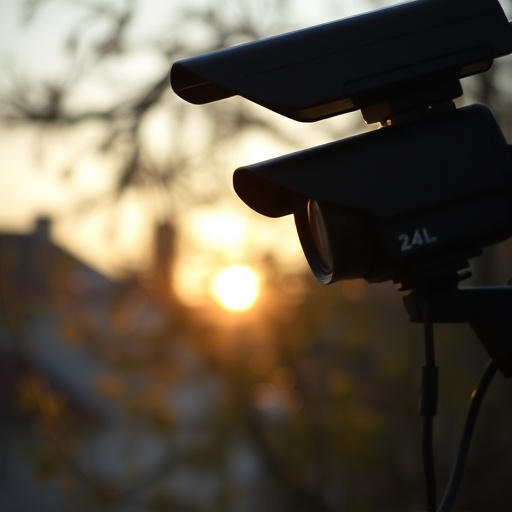Hidden cameras in the US are governed by diverse state laws (Hidden Camera Laws by State), with strict consent requirements and penalties for non-compliance. Understanding these regulations is crucial for ethical deployment to respect privacy rights while leveraging surveillance technology responsibly.
Uncover the art of discretion with our comprehensive guide on tiny camera concealment within everyday objects. In today’s digital age, understanding hidden camera laws across the US is paramount for protecting privacy rights. This article delves into legal considerations for widely accessible cameras, focusing on state-specific regulations. From navigating hidden camera laws by state to practical tips on concealing devices, ensure you’re equipped with knowledge in this intricate landscape.
- Understanding Hidden Camera Laws Across the US
- Legal Considerations for Everyday Cameras
- Stateside Rules: Protecting Privacy Rights
- Concealing Cameras: What You Need to Know
Understanding Hidden Camera Laws Across the US
Hidden cameras have become increasingly prevalent in everyday life, with many people using them for security, surveillance, or even personal entertainment. However, it’s crucial to understand that each state in the US has its own set of Hidden Camera Laws to protect citizens’ privacy. These laws vary widely, from strict regulations on the use of hidden cameras to more lenient guidelines. For instance, some states, like California, have stringent rules prohibiting the installation of hidden cameras without explicit consent from all parties involved. In contrast, other states might allow certain types of hidden cameras under specific conditions, such as for security purposes in businesses or homes.
When navigating Hidden Camera Laws by State, it’s essential to be aware that violations can lead to severe penalties, including fines and potential jail time. To ensure compliance, individuals or businesses considering the use of hidden cameras should thoroughly research the laws in their respective states. This knowledge will not only help them stay within legal boundaries but also foster a culture of respect for privacy rights across the US.
Legal Considerations for Everyday Cameras
When it comes to everyday objects as hidden camera concealment, understanding the legal landscape is paramount. Different states have varying laws regarding hidden cameras, with some having stricter regulations than others. For instance, many jurisdictions require explicit consent from all parties involved in a conversation or activity being recorded. The term “Hidden Camera Laws by State” refers to these distinct legal frameworks, ensuring privacy rights are respected while acknowledging the growing prevalence of surveillance technology in everyday life.
It’s crucial for users to be aware of their state’s specific laws before deploying hidden cameras. Non-compliance can lead to severe penalties, including fines and legal repercussions. Therefore, a thorough understanding of Hidden Camera Laws by State is essential to ensure ethical and legal camera usage, fostering a balance between personal privacy and the potential benefits of surveillance technology.
Stateside Rules: Protecting Privacy Rights
In the United States, the use of hidden cameras is regulated by a patchwork of state laws, each with its own set of rules and restrictions. These laws are designed to protect individuals’ privacy rights while balancing the potential benefits of surveillance technology. Understanding Hidden Camera Laws by State is crucial for anyone considering deploying such devices, as non-compliance can lead to serious legal repercussions.
State regulations vary widely, covering issues like consent requirements, permissible uses, and storage of recorded footage. Some states have strict rules against hidden cameras in common areas or public spaces, while others allow their use under certain conditions. It’s essential for users to familiarize themselves with the specific laws in their jurisdiction to ensure legal and ethical deployment of hidden cameras.
Concealing Cameras: What You Need to Know
In today’s digital age, the art of concealing cameras has evolved, transforming everyday objects into silent observers. From tiny, discreet devices to innovative tech, the ability to secretly capture footage has sparked both intrigue and debates around privacy. As technology advances, so does the need for awareness regarding hidden camera laws by state, ensuring ethical use while respecting individual freedoms.
Each state in the US has its own set of regulations surrounding surveillance equipment, including hidden cameras. Understanding these laws is crucial before employing such devices to ensure compliance and avoid legal repercussions. By knowing the permitted uses, recording restrictions, and consent requirements, individuals can navigate this intricate landscape, leveraging technology responsibly while maintaining transparency.
In conclusion, navigating the complexities of hidden camera laws across different states is essential for anyone considering deploying everyday objects as surveillance tools. Understanding these regulations is crucial to ensure compliance and protect privacy rights. By familiarizing yourself with the legal landscape, from Hidden Camera Laws by State to best practices in camera concealment, you can make informed decisions while respecting personal freedoms.
